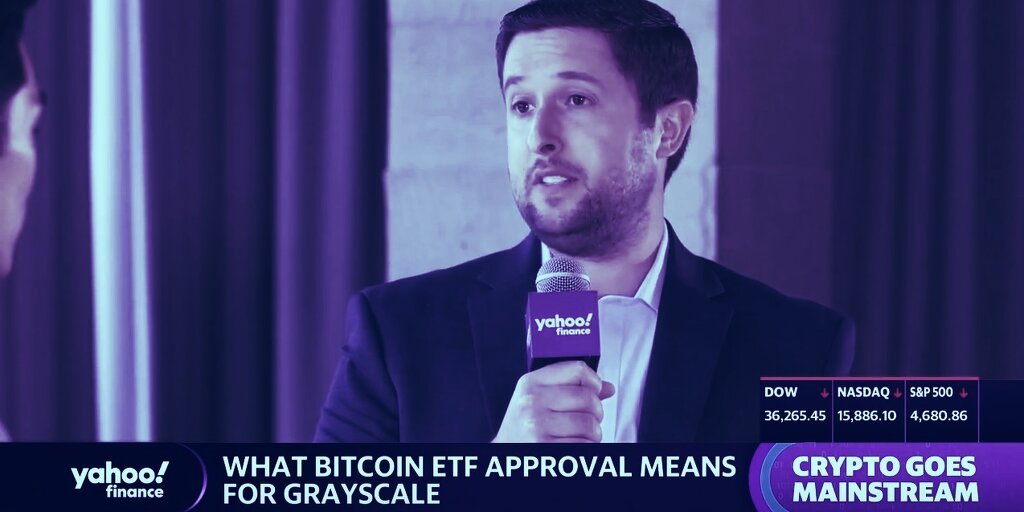The ongoing question of whether U.S. regulators will approve a Bitcoin spot exchange-traded fund has “become a political issue,” according to Michael Sonnenshein, CEO of digital asset manager Grayscale.
Speaking at the “Crypto Goes Mainstream” event hosted by Decrypt and Yahoo Finance, Grayscale CEO Michael Sonnenshein said that the debate has now spread beyond the “investment community” to draw in politicians. “In the last week, we’ve actually seen bipartisan support for a Bitcoin spot ETF from Emmer and Soto,” he said, referring to the bipartisan letter sent by Rep. Tom Emmer (R) and Rep. Darren Soto (D) to SEC chairman Gary Gensler.
In the letter, Emmer and Soto questioned why, if the SEC was prepared to approve a Bitcoin futures ETF, “you are not equally or more comfortable allowing trading to commence in ETFs based on spot Bitcoin,” given that a Bitcoin futures ETF ultimately tracks the price of the same asset. In the past, the SEC has repeatedly denied applications for an ETF tied to the Bitcoin spot market, while recently approving several Bitcoin futures ETFs.
Sonnenshein picked up on the argument made by Reps. Emmer and Soto, noting that the SEC, “is really just concerned over the underlying Bitcoin market, things like pricing manipulation on regulated markets of significant size.” According to Sonnenshein, the crypto industry—and now politicians—are making the case that, “if you’re comfortable with the derivatives […] and those futures contracts are deriving their pricing from the spot market itself, then you’re inherently also saying you’re comfortable with the spot market.”
He added that when presented with ETFs based on “easily stored” commodities such as gold, “you’ve seen investors gravitate towards the product that physically holds that commodity, even though there are derivative products, futures-based products.”
While the SEC has repeatedly highlighted Bitcoin’s volatility in warnings to investors, Sonnenshein argued that “investors who are actioning investment today are doing so knowing full and well that crypto and their investments are inherently going to have volatility associated with them,” adding that volatility “has been inherent to the asset class since the beginning.” The emergence of crypto derivatives, borrowing and lending have acted as a catalyst for an influx of new investors into crypto, he said, noting that, “These are the types of tools that investors are used to having at their disposal when they think about accessing an asset class.”
Grayscale has long harbored ambitions to turn its flagship product, the Grayscale Bitcoin Trust (GBTC), into a full-fledged Bitcoin ETF. In October, the digital asset manager filed a formal application with the SEC to convert GBTC into an exchange-traded fund backed by physical Bitcoin. The firm first announced its intention to do so in April, noting that the firm is “100% committed to converting GBTC into an ETF,” and that “the timing will be driven by the regulatory environment.”





















